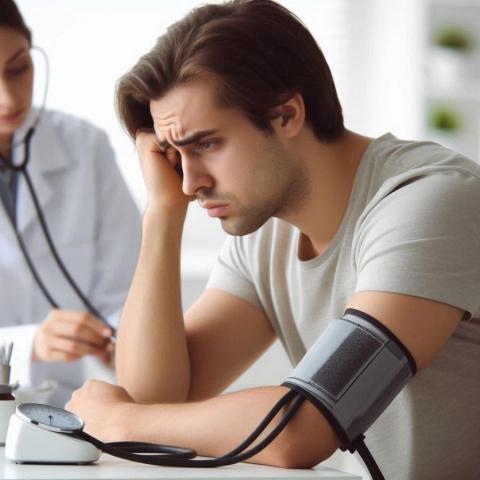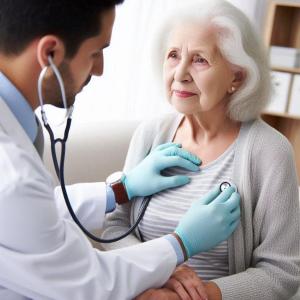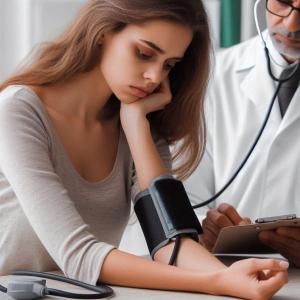
What causes low blood pressure
Low blood pressure, also known as hypotension, is a condition where the blood pressure in the arteries is lower than usual. Blood pressure measures the force with which blood presses against the walls of the arteries during a heartbeat. While low blood pressure is often considered to be below 90/60 mmHg, individual symptoms and effects can vary widely. Some people have low blood pressure all the time without experiencing any symptoms, while others may feel dizziness, fainting, and other issues.
Main Causes of Low Blood Pressure
-
Dehydration: Lack of sufficient fluid in the body can decrease blood volume, leading to lower blood pressure. Dehydration can occur due to inadequate fluid intake, excessive sweating, vomiting, diarrhea, or the use of diuretics.
-
Heart Problems: Some heart issues can reduce the heart's ability to pump blood effectively. These include heart failure, bradycardia (slow heart rate), heart attack, or valve problems. In these cases, the heart does not pump blood strongly or quickly enough, which can lead to low blood pressure.
-
Endocrine Disorders: Hormonal issues, such as Addison's disease, hypothyroidism (underactive thyroid), or hypoglycemia (low blood sugar), can affect blood pressure regulation. Hormones secreted by the adrenal glands and thyroid play a crucial role in maintaining normal blood pressure.
-
Severe Infection (Sepsis): When a bacterial infection enters the bloodstream, it can cause a life-threatening drop in blood pressure known as septic shock. This condition requires urgent medical attention.
-
Blood Loss: Significant blood loss, whether due to trauma or internal bleeding, can drastically reduce blood volume in the body, leading to a drop in blood pressure. The body cannot maintain normal pressure in the arteries if too much blood is lost.
-
Severe Allergic Reactions (Anaphylaxis): Anaphylactic shock is a severe, sudden allergic reaction that can cause a dramatic drop in blood pressure, breathing difficulties, swelling, and other serious symptoms. It is an emergency that requires immediate medical care.
-
Postprandial Hypotension: This is a drop in blood pressure after eating, primarily occurring in older adults. After a meal, blood naturally flows to the digestive tract to aid digestion, which can cause a temporary drop in blood pressure in some people.
-
Orthostatic Hypotension: This form of low blood pressure occurs when someone stands up quickly from a sitting or lying position. This sudden change in position can cause a temporary drop in blood pressure, leading to dizziness or even fainting.
-
Certain Medications: Various medications can cause a drop in blood pressure. These include diuretics, beta-blockers, medications for treating Parkinson's disease, certain antidepressants, and some pain relievers. These drugs can affect the body's ability to regulate blood pressure.
-
Pregnancy: During pregnancy, a woman's blood circulation increases, which can cause a drop in blood pressure. This is usually most pronounced in the first and second trimesters.
Symptoms of low blood pressure can vary and include:
-
Dizziness or lightheadedness.
-
Fainting.
-
Blurred vision.
-
Nausea.
-
Fatigue.
-
Lack of concentration.
If low blood pressure causes fainting, it may be a sign of a more serious problem, such as heart disease or a severe infection. People who frequently experience low blood pressure with symptoms should seek medical attention to determine the cause and appropriate treatment.
Low blood pressure is not always problematic by itself, but it can become dangerous if it causes symptoms or is due to a serious medical condition. Understanding the cause of low blood pressure is essential to taking appropriate action. Regular monitoring of blood pressure and consulting a doctor are key to maintaining good health.



